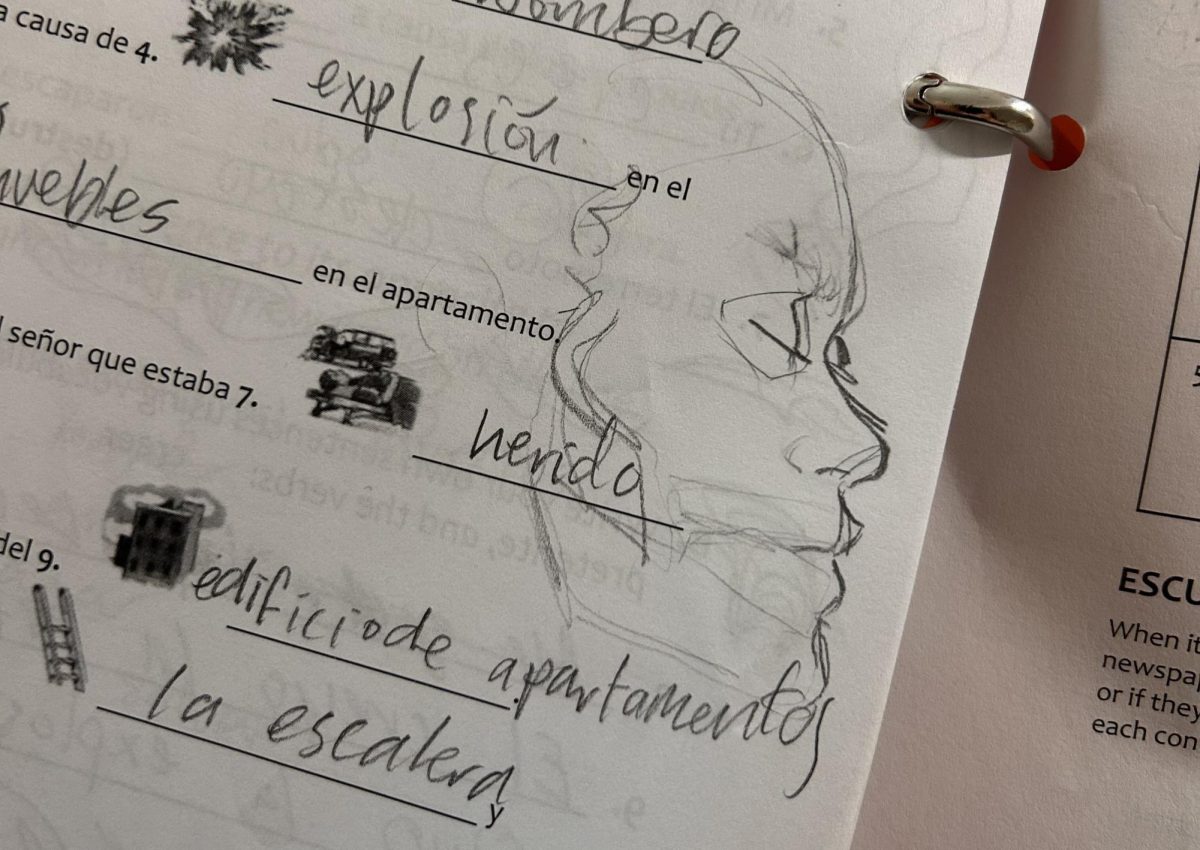Merely a few years ago you would see students reading books when they’re bored in class. If you look around in classrooms nowadays, the leisure activity of paperback books has nearly—not to say completely—gone extinct, and is overwhelmed by the myriad of virtual, social, and virtually social activities that smartphones have.
But of course reading hasn’t completely disappeared, nor are phones the only source of leisure a student can have at school. In fact, students have found quite some ways to pass their time when they’re utterly bored of their classes, two of them being junior Abbey Stasicha and sophomore Lee Olson.
“I nap whenever I’m bored, whenever I don’t like what the teacher’s teaching, or […] whenever I just get the urge to fall asleep,” Stasicha said.
“You do it. Everyone does it… at some point. […] I nap all the time [at school] whenever I can get away with it,” Olson said. It doesn’t cost anything. It’s easy to do. There’s no learning curve, you just kinda do it.”
Contrarily to these sleepy Spartans, you may find a handful of gamers amongst the students who chiefly use their cell phones as a pass time, one of them being sophomore Alp Yalcin. Yalcin spends his free time in class playing ‘quick rounds’ like Clash Royale, Roblox games, or Minecraft.
“I think they kinda distract me from the stress of school [and] add more fun to what may be boring or making me stress[ed] out,” Yalcin said.
When students think about homework, they would mostly think about the time they have at home to do their schoolwork. On the other hand, junior Riya Madhav would say the opposite.
“I usually just try and get my homework done [because] I don’t want to do it at home, that’s why I use this time to do my work,” Madhav said. “The homework I do [in class] is […] something I can get done really easily ‘cause I’ll save the rest at home [as] I’ll have more time to do it.”
Now that you have walked in every corridor and searched through every class; noticed the obviously numerous phones held in the hands of many students; found a few students reading, doing homework, or sleeping hither and thither; or were one of the few that have seen or heard of the Origami Expert; you feel like you’ve seen it all. Well, you’re far from the finish line.
Although it would require endless searching and inquiries to be able to find and mention all the little activities Spartans might be up to in class, there is still one pastime that ought to get its spotlight—and that is drawing.
“Drawing is the best activity to do if you want to pass the time because you have the ability to create anything you want, or in other words infinite content, and the size of your paper is your only limit,” junior Faithlyn Nguyen said.
You might be thinking, “well what about books? Aren’t there still some paperback book readers?” People have various reasons as to why they are still attached to physical books: they’re aesthetic, they’re pleasant to hold, they’re less rough on the eyes than e-books, and they’re a simple attachment to the past. Meanwhile, some others like Mikaela Pacheco might have realised the consequences of phone addiction and resolved them by replacing their time spent online with reading more books.
“I think that it’s a better use of my time, and also I deleted my social media because I found that it was a little too addictive and I couldn’t really move [on] from it. It was taking up so much of my time—and honestly wasting it—so I took to reading,” Pacheco said.
Napping, video gaming, doing homework, drawing, or simply reading—all pastimes are characteristic to an individual’s preferences and likings. Apart from adding more fun to some of your boring lectures or lightening your homework load by doing it in class, sleepy Stasicha believes that napping has quite some surprises if you let it.
“I would say that it passes the class faster, and if you fall asleep and have dreams it makes interesting stories,” Stasicha said.
There isn’t solely one valid reason as to why students are bored in class; in fact, the argument might go on and on because each individual is different in their learning processes. One prominent reason is the overwhelming presence of electronic devices.
“I think the fact that [students] are able to use their phones is more appealing to them rather than just finishing their homework ‘cause they know they can do it later,” Madhav said.
Another reason may be the decreasing lack of attention due to not only phones, but as well as sleep and perhaps the daily stressors of school and work.
“It’s just because we’re so used to being able to fast-forward and rewind on Tik Tok videos or YouTube videos—and obviously Tik Tok is the craze,” Pacheco said. “I think that all of that kind of deviates the mind from what people truly need to be centered on and focused on—and honestly I don’t blame them—but it’s just a systemic issue.”



